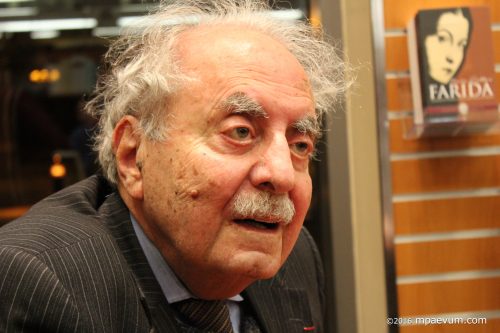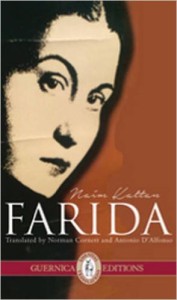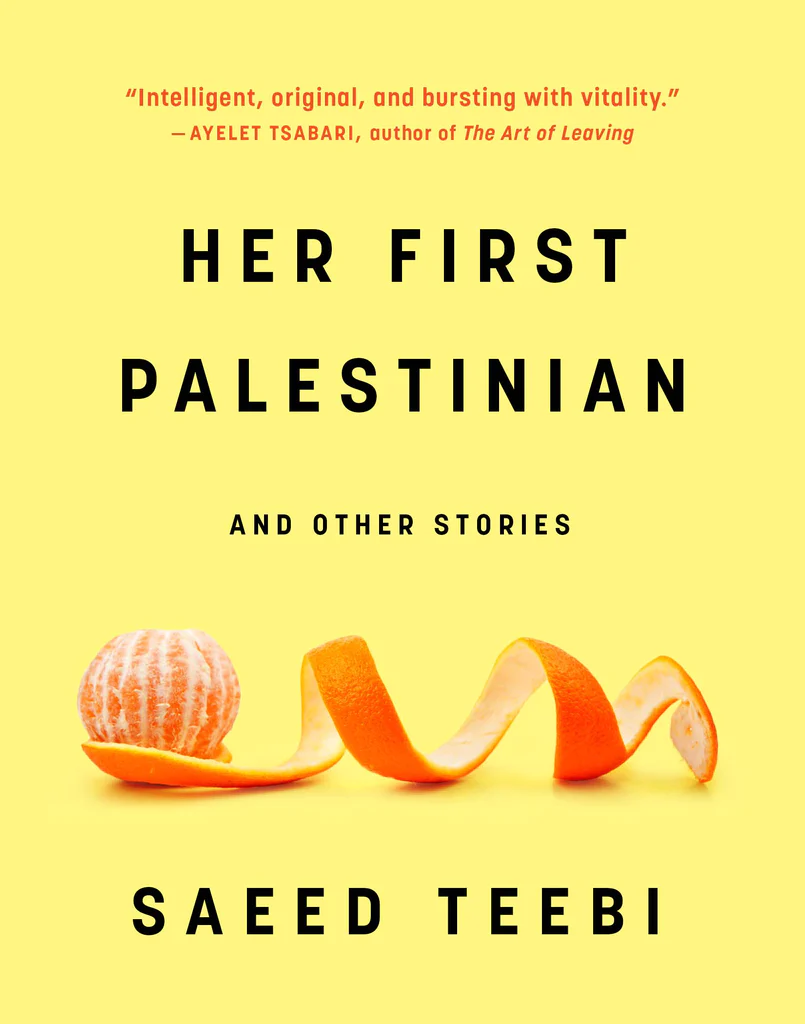
Naïm Katta
Farida by Naïm Kattan, translated by Norman Cornett and Antonio D’Alfonso, Guernica Editions, 252 pp.
Canadian novelist, essayist and critic, Naïm Kattan, has penned more than 50 works including 30 published books, and is one of the best-known francophone writers on the international scene. Yet he is hardly known in English Canada, and only five of his novels have been translated into English.
Two Montrealers took action to rectify that. Norman Cornett, a religious studies scholar, educator and art critic, and Antonio D’Alfonso, author, editor, translator, publisher and filmmaker, decided it was time to translate Kattan’s 1991 novel, Farida, which Cornett likens to a post-modern Book of Esther.

Kattan is an author of Jewish Iraqi descent who was born in Baghdad in 1928. He studied at the University of Baghdad and the Sorbonne before emigrating to Montréal in 1954. His novel Farida tells the story of an unconventional young Jewish woman in Iraq in 1936 whose ambition is to make a name for herself as a singer. For women in pre-WWII Iraq, that profession carried with it a certain infamy and a number of risks. Farida is nonetheless determined to navigate her way, even as the realities of being a nightclub singer clash head-on with her romantic ideals about love, and challenge her relationship with Salim, the love of her life. She is expected to be available to patrons despite her claims of being married, unless she accepts the protection of a wealthy and powerful patron. When the chief of police takes an interest in her, Farida proves to be resourceful and daring, and her choices lead to some unusual plot twists.
Farida gives us a glimpse into the pre-war Middle-Eastern Jewish experience, a narrative not often portrayed, which is framed by the political developments of the time: the rise of Nazism both in Europe and in Iraq, the struggle between Iraqi nationalists and British imperialists and their Iraqi cronies, and the fears and tensions among the country’s Jewish population, generated by mounting anti-Semitic fervour.
For the most part, the main characters in this novel are not prone to introspection, nor are they particularly connected to the society around them, and it is left to the narrator to situate their choices against a backdrop of historical and geopolitical forces. This narrative voice is one of the most engaging facets of the novel.
The English translation of Farida is the labour of two translators, and this may have posed certain challenges in keeping the tone, style and language consistent. It nonetheless succeeds in conveying an enlightening perspective on life in certain circles in Iraqi society in the 1930s, telling an Iraqi Jewish woman’s story in a way that is innovative and far from predictable.










